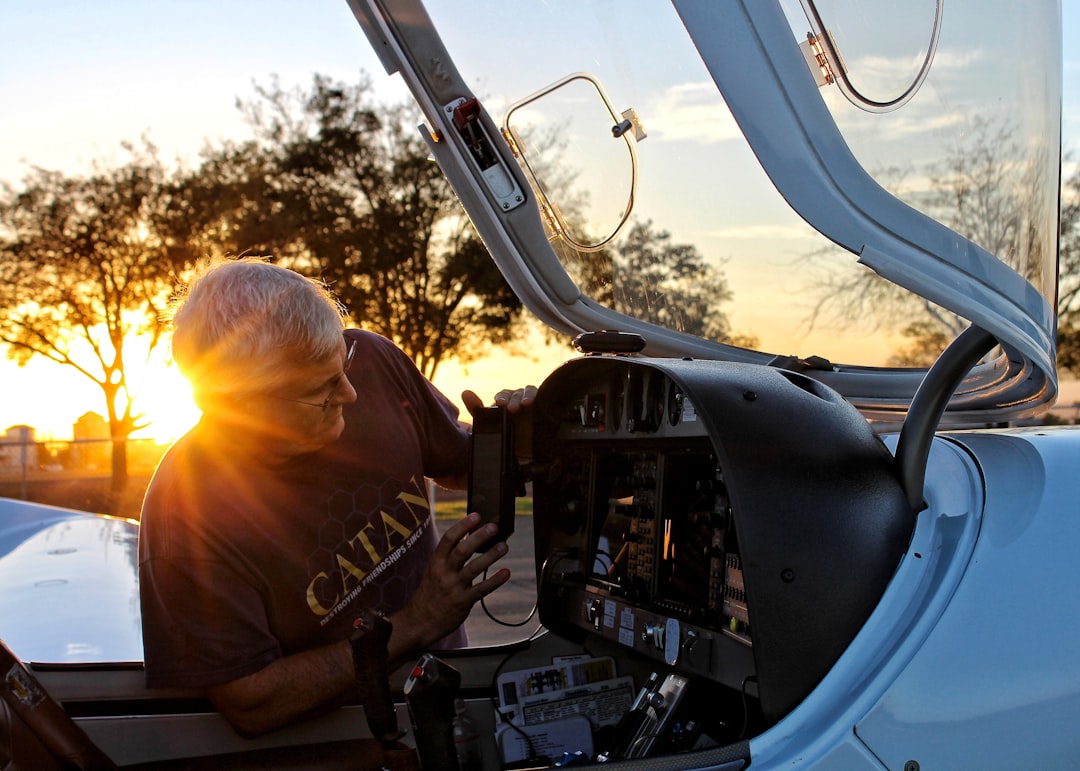Aeroplane Pilot Kaiwhakahaere Waka Rererangi
Aeroplane pilots fly planes that transport people and goods, or spread fertiliser or bait.
Aeroplane pilots may do some or all of the following:
- prepare or check flight plans
- do pre-flight checks of weather forecasts and the plane's load, fuel and equipment
- calculate the amount of fuel needed for flights
- programme flight management systems
- liaise with air traffic control
- navigate and fly the plane to its destination
- write flight reports and keep a flight log
- greet passengers and assist them if necessary.
Agricultural pilots may also:
- consult with customers about chemicals and fertiliser
- calculate the amount and cost of chemicals or fertiliser
- apply chemicals or fertiliser to farm land and keep records.
To become an aircraft captain of a plane that needs a co-pilot, you must also have an Airline Transport Pilot Licence (ATPL).
Physical Requirements
Aeroplane pilots need to have:
- good hearing and eyesight (with or without corrective lenses)
- good reflexes and co-ordination
- a good level of fitness and health, as they must pass a medical exam every year.
Useful Experience
Useful experience for aeroplane pilots includes:
- aviation industry work
- aircraft engineer work
- loader/driver work
- work with navigational and radio equipment
- customer service.
Personal Qualities
Aeroplane pilots need to be:
- responsible
- good at planning, thinking logically, and following procedures
- excellent at working under pressure
- able to make quick, sound decisions
- good leaders
- skilled communicators
- able to relate to people from a range of cultures and backgrounds
- resilient
- good at record-keeping.
Skills
Aeroplane pilots need to have:
- excellent flying skills
- knowledge of flight theory and flight planning
- skill in interpreting flight plans, weather information and navigation data
- knowledge of aircraft systems
- understanding of aviation laws
- knowledge of safety rules and emergency procedures.
Agricultural pilots also need to have:
- knowledge of different types of farming, and the chemicals and fertilisers farmers use
- an understanding of Health and Safety at Work (Hazardous Substances) Regulations, and the Resource Management Act
- knowledge of air and water quality plans (to avoid pollution) and industry codes of practice.
Conditions
Aeroplane pilots:
- work irregular hours (some pilots do shift work, and agricultural pilots may do seasonal work)
- work in airports and aeroplane cockpits
- work in conditions that may be noisy, and can be uncomfortable in bad weather
- travel within New Zealand or internationally.
Subject Recommendations
You need NCEA Level 3 to do the study or training for this job. Useful subjects include English, maths and physics.
Flying experience at aero clubs
If you are between 12 and 18 years old, you can apply for the Young Eagles flying experience programme, run through local aero clubs.
Related Subjects
Aeroplane Pilots can earn around $96K-$283K per year.
Pay for aeroplane pilots varies depending on experience, qualifications, location and what type of plane they fly.
New pilots' work may be irregular and part time. They may need to rely on a supplementary job to make a living, until they have enough flying experience to apply for work at an airline.
Aeroplane pilots usually earn $96,000 to $283,000 per year.
Aeroplane pilots can earn $62,000 to $392,000 per year.
Source: TEC research.
Charter or agricultural pilots and flying instructors
Charter pilots, agricultural pilots and flying instructors often work part time. They may start on the minimum hourly wage.
Newly qualified aeroplane pilots often complete further training to work as flying instructors. This means they can build up enough flying hours to apply for work at an airline.
Aeroplane pilots can specialise in a number of roles, including:
- Agricultural Pilot
- Agricultural pilots fly aircraft to apply chemicals or fertiliser to farmland. They may fly fixed-wing aircraft or helicopters.
- Charter Pilot
- Charter pilots fly tourist or air ambulance services, or provide services such as aerial photography or land surveying.
Years Of Training
2-3 years of training required.You need a qualification and training to become a pilot.
You need:
- to be over 16 years old
- a New Zealand Private Pilot Licence OR New Zealand Commerical Pilot Licence
- to pass the ADAPT pre-pilot screening test
- 50 hours' flying experience for private pilots OR 200 hours' flying experience for commercial pilots
- a New Zealand Diploma in Aviation (Level 6) OR New Zealand Diploma in Aviation - (Aeroplane and Helicopter) (Level 6) OR a Bachelor of Aviation
- an NZCAA medical certificate.
You may need:
- experience in the Young Eagles flying programme
- to join the Royal Air New Zealand Force
- Flight Instructor Training (C Category).
Military pilots
To become a military pilot, you need to join the Royal NZ Air Force and complete their training.

 St Mary’s College (Ponsonby)
St Mary’s College (Ponsonby)